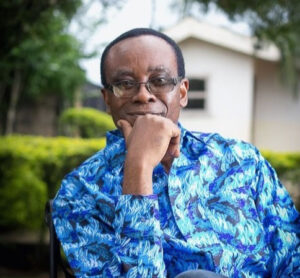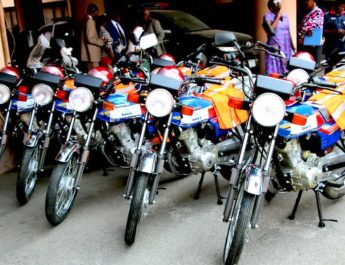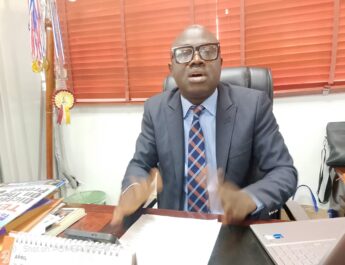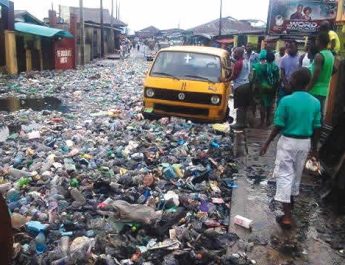Citing increasing challenges in managing their onshore oil and gas assets in Nigeria, International Oil Companies (IOCs) embark on speedy divestments from the Niger Delta to focus more on offshore operations, but civil society groups insist that the IOCs must not be allowed to divest until they clean up the environmental harms their activities have caused in the last six decades
By Edu Abade
No fewer than 24 community groups and civil society organizations and concerned citizens from across Nigeria have urged President Bola Tinubu to urgently stop the divestments of International Oil Companies (IOCs) from the Niger Delta region, insisting that they must not be allowed to leave behind the ecological disaster their oil exploration activities have caused over the years.
The groups also asked President Tinubu and the Nigeria Upstream Petroleum Regulatory Commission’s (NUPRC) to sustain their rejection of Shell’s request to sell its remaining shares in the Shell Petroleum Development Company (SPDC) to the Renaissance Consortium.
They stated that other international oil corporations, such as Total Energies, are also attempting to sell their stakes in SPDC and other Nigerian onshore oil assets, adding: “We state categorically that any approval of Shell’s and Total’s requests would weaken regulatory independence, ignore the interests of the Niger Delta communities, jeopardize the environmental and social well-being of the region for generations to come and undermine Nigeria’s sovereignty.
“We are, again, compelled to ask for a comprehensive halt to all divestment requests from oil corporations in the Niger Delta, including Shell, Total and other IOCs with similar plans, until all the issues around crude oil and gas exploration have been fully addressed.”
The groups and their representatives who signed the communiqué are Nnimmo Bassey (Health of Mother Earth Foundation (HOMEF); Dr. Isaac ‘Asume’ Osuoka (Social Action Nigeria); Olanrewaju Suraju (HEDA Resource Centre); Emem Okon (Kebetkache Women Development and Resource Centre); Akinbode Oluwafemi (Corporate Accountability and Public Participation Africa (CAPPA); Idoreyin Bassey (League of Queens International Empowerment); Tijah Bolton-Akpan (Policy Alert); Ken Henshaw (We the People); Rita Uwaka (Environmental Rights Action/Friends of the Earth Nigeria); David Ugolor (Africa Network for Environment and Economic Justice (ANEEJ) and Mfon Utin (Healthy Life Development Initiative).
Others are Comrade Cynthia Buluebiere Bright (Gbolekekro Women Empowerment and Development Organization (GWEDO); Auwal Musa Rafsanjani (Civil Society Legislative Advocacy Centre (CISLAC); Cookey Tammy (Centre for Environment, Human Rights and Development (CEHRD); Umo Isua-Ikoh (Peace Point Development Foundation); Friday Nbani (Lekeh Development Foundation); Amanie Stella (Society for Women and Youths Affairs (SWAYA); Martha Agbani (Lokiaka Community Development Centre); Akpobari Celestine (People’s Advancement Centre); Ogoni Solidarity Forum; Chido Onumah (Africa Centre for Media and Information Literacy (AFRICMIL); Ibrahim M. Zikirullahi (Resource Centre for Human Rights and Civic Education (CHRICED); Odey Friday (Accountability Lab International Peace and Civic Responsibility Centre (IPCRC); Arochukwu Ogbonna (Civil Rights Council) and Josephine Alabi (Keen and Care Initiative).
In a resolution document made available to journalists by Media and Communication Lead of HOMEF, “Kome Odhomor, the groups pointed out that it was critical to emphasize that the Nigerian Petroleum Industry Act (PIA) and NUPRC’s responsibility to uphold the law were clearly outlined when Shell’s divestment request was initially rejected.
“NUPRC’s refusal was based on legitimate concerns, including Shell’s failure to adequately address the significant environmental and social liabilities associated with its operations in the Niger Delta, as was independently assessed and recommended by international assessors
contracted by the country.
“Among the reasons for rejecting the sale, NUPRC cited inability of the Renaissance Consortium, a shady company with links to past Shell executives and Nigerian political actors, to demonstrate its financial and technical capacities to manage the assets and the pressing need for proper environmental remediation.
“NUPRC’s rejection was in line with the responsibilities outlined under Nigerian law and global best practices for corporate accountability. It is a decision rooted in national interest-protecting the health, safety and environment of the Niger Delta communities.
“Any attempt to approve Shell’s sale despite these valid concerns would risk undermining regulatory independence and signaling that Nigerian law can be bypassed to serve the interests of multinational corporations,” they stated.
 Citing the United Nations Environment Programme’s (UNEP) report on Ogoniland, they said the environmental and health crises caused by Shell and other oil corporations operating in the Niger Delta are well documented, stressing that the document described an ecological disaster of immense proportions.
Citing the United Nations Environment Programme’s (UNEP) report on Ogoniland, they said the environmental and health crises caused by Shell and other oil corporations operating in the Niger Delta are well documented, stressing that the document described an ecological disaster of immense proportions.
UNEP’s findings revealed that drinking water sources are contaminated with dangerous levels of hydrocarbons, making them unsafe for human consumption, while oil spills have destroyed entire ecosystems, killing marine life and damaging the biodiversity that is crucial for the livelihood of local communities, among other infractions.
They also lamented that the Bayelsa State Oil and Environment Commission’s (BSOEC) report provides a detailed analysis of the severe pollution caused by Shell’s and other multinational companies’ operations, including health impacts.
“The report revealed high levels of toxins from oil pollution, such as total petroleum hydrocarbons (TPHs) and heavy metals (HMs), have infiltrated the air, water, and soil across the region, contributing to a public health emergency.
“Communities are suffering from respiratory issues, skin diseases, and cancers linked to oil pollution, and these problems are worsening by the year. The economic cost of these health impacts and the degradation of natural resources is incalculable, leaving most of the people in poverty and unable to sustain themselves through traditional means like farming and fishing, among others,” they stated.
They also pointed out that the BSOEC report also estimates that the cost of remediating the damage in Bayelsa State alone would exceed $12b in 12 years, adding that based on the UNEP and BSOEC reports, it would require about $100 billion to address the environmental damage in the entire Niger Delta comprehensively.
“Following the Deepwater Horizon oil spill in the United States, BP, the company responsible, paid over $60 billion to address the impacts of one oil spill incident alone. The environmental damage of the Niger Delta is much worse and has spanned decades.
“Therefore, to allow Shell, TotalEnergies or any other company to evade their responsibilities would mean transferring these liabilities to the Nigerian state, the Niger Delta states and the Nigerian people. This is an unjust and unsustainable burden that would further exacerbate the challenges faced by communities already suffering from the effects of pollution and environmental neglect.
The groups, therefore, urged President Tinubu to immediately stop all divestment processes until a transparent, comprehensive and inclusive review is undertaken to address Shell’s and Total Energies’ historical environmental and social liabilities.
They also demanded that the Federal Government should ensure inclusive and transparent consultation with state governments and the people of the communities and sites of oil and gas extraction in the Niger Delta before any further divestment of the IOCs’ assets, among others.
In a similar vein, the Environmental Defenders Network (EDEN) has decried Federal Government’s continued deference to International Oil Companies’ (OICs) over gas flaring, which has contributed to the environmental infractions in the Niger Delta and its tacit support and approval of their divestment plans.
Speaking at the end of its retreat in Benin City, Edo State, it criticized Federal Government’s positive disposition to the OICs divestment plans, maintaining that the development will de-market the country, as the oil majors plan to evade responsibility for cleaning the mess they will leave behind following successful divestments from their onshore facilities.
In a communiqué signed by Chairman, Board of EDEN, Barrister Chima Williams and Secretary of the Board, Philip Jakpor, the group expressed concern over the Federal Government’s unwillingness to make the firms take full responsibility for the hazards their operations have caused the environment and livelihoods of oil host communities.
“We have noticed the speed with which oil multinationals that have operated for decades in the Niger Delta are divesting from their on-shore operations and their race to the deep waters where the federal government lacks the capacity to monitor their operations.
“Instead, the Federal Government has approved Eni’s divestment of Nigerian Agip Oil Company (NAOC) to Oando Plc, Equinor Nigeria Energy Company Limited’s divestment to Project Odinmin Investments Limited, Total Energies-Telema Energies deal and ExxonMobil’s sale of Mobil Producing Nigeria Unlimited (MPNU) to Seplat Energy Plc. Government’s support and approval of the divestments is in flagrant disregard for the rights of the people and concerns of communities impacted by the operations of the firms for environmental justice.
“We insist that oil corporations should not be allowed to divest from the Niger Delta until it takes full responsibility for its toxic legacy of pollution. They must also decommission abandoned oil infrastructure. Also, buyers of the toxic assets of the divesting firms must be compelled to accept the liabilities of the former owners of the onshore operations,” the communiqué reads.
EDEN demanded an immediate halt to the divestments, while pledging its readiness to give legal support to communities that are against divestment without clean-up, remediation and compensation.
On the proposed ban on gas flaring, it commended the Anti-Gas Flaring (Prohibition and Enforcement) bill, which seeks to prohibit the flaring and venting of natural gas, except in strictly regulated circumstances, saying it was heartwarming that the bill has passed second reading at the House of Representatives.
The Bill, sponsored by Hon. Babajimi Benson seeks to also encourage the utilisation of gas resources to foster economic growth and energy generation. The lawmaker had on December 5, 2024 argued that the proposed law will mitigate the environmental, health and economic impacts of gas flaring and will align Nigeria’s oil and gas operations with its international climate change commitments.
Also speaking on illegal mining of solid minerals in parts of the country, the group raised the alarm over oil spills, citing the spate of mine collapse across the country and deaths associated with solid minerals extraction.
“In the last six months there have been no fewer than three major incidents including the Shiroro mine collapse in Niger State, which claimed about 50 lives in June 2024, the Adamawa pit collapse in which 30 miners died and the more recent incident in Plateau State where 13 young persons died.
“Our fear that the quest to expand the nation’s revenue base through solid minerals extraction would inflict fresh wounds in our communities is manifesting by the day. We have observed the impact of mining in Nasarawa, Plateau, Kogi, Zamfara and a host of other states especially, in the north where illegal mining activities have not only ruined their environment, but also their livelihoods and major sources of water for domestic use.
“The influx of foreign mining firms especially those run by Chinese nationals, is particularly worrying as their largely unmonitored activities have opened the path for insecurity and strife in host communities as well as growing cases of child sex trafficking and minors who work in mining sites. The situation is not helped by governments across the mining belt, prioritising revenue over the protection of the environment and residents of local communities.
“More disconcerting is the conflicting approaches to address the crisis. While the Mining Marshall initiative by the Federal Government is good, it still lacks the necessary ingredients to work well as it is in conflict with the work of the Nigeria Security and Civil Defence Corps (NSCDC) and the proposed forest rangers being promoted by the Nigerian Senate,” it stated.
The group proposed a uniform approach to addressing the issue of illegal mining and suggested that the Mining Marshals established by the Federal Government should work with the NSCDC and community monitors who, should periodically and without notice, visit mining sites to know whether or not the operators are operating within accepted standards.
EDEN also urged the Federal Government to explore the possibility of amending the NOSDRA Act to accommodate solid minerals under its umbrella, changing its name to reflect the modification, adding: “We restate our call for the states houses of assembly and the National Assembly to work with the Ministry of Solid Minerals and Development to take their oversight functions seriously to effectively check the illegalities around solid minerals mining in the country.
“They must also fish out the masterminds of the illegal mines if Nigeria is serious about stopping the deaths of young children forced into mining due to the poverty in their communities. Unless this is done, the communities will soon start revolting because their rights to life and sustainable environment are being violated.
“Illegal miners should be treated as economic saboteurs and when arrested, be subjected to a minimum of three years imprisonment after confiscation of operation materials found with them. We believe that in a well-regulated mining sector, host communities should be entitled to a minimum of 10 percent of all accrued funds from mining operations,” it added.




